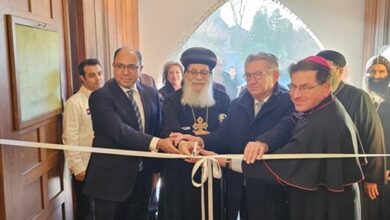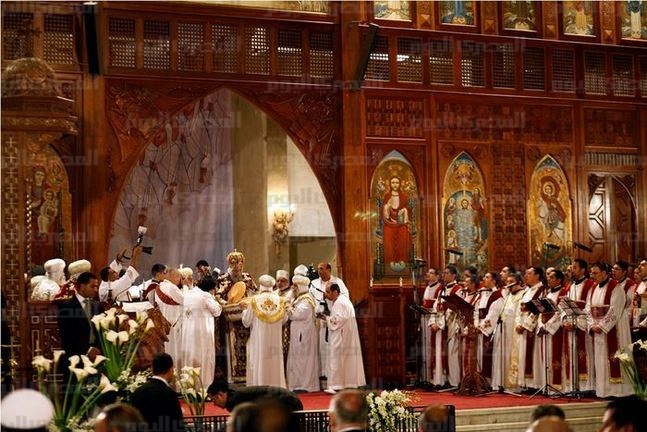Amid a wave of Muslim-Christian tension in Egypt, a local rights watchdog has launched a campaign against sectarianism that aims to raise awareness about the hazards of religious intolerance and promote the values of shared citizenship.
Ramy Raoof, of the Cairo-based Egyptian Initiative for Personal Rights (EIPR), said the "Anti-Sectarian Campaign in Egypt" comes at a critical juncture, when concepts such as citizenship and freedom of belief have been increasingly eroded.
"We've witnessed the absence of the language of citizenship among all the parties involved in the current state of sectarian unrest," Raoof told Al-Masry Al-Youm.
Last month, Bishop Bishoy, secretary of the Coptic Church's Holy Synod, angered Muslims when he publicly challenged the authenticity of certain verses of the Quran, the Muslim holy book. During Friday prayers, hundreds of Muslims protested in Alexandria calling for Bishoy–the second highest authority in the Coptic Church–to be tried in court for his comments.
The protest came two days after Al-Azhar Grand Sheikh Ahmed al-Tayeb and Coptic Pope Shenouda III had issued a joint statement in which they condemned attempts to ignite sectarian tension between Muslims and Christian.
The state’s non-interference policy in efforts to ease sectarian friction, meanwhile, is for many activists an alarming sign.
"All sectarian events have a common feature, which is the absence of the government," said Raoof. “The state doesn’t open any comprehensive investigations into acts related to sectarian aggression."
Sectarian tension has occasionally led to violent confrontations between Egypt's Muslim majority and Christian community. The latter is dominated by Coptic Christians, who represent an estimated six to ten percent of Egypt's population of 80 million.
Last January, on the eve of Coptic Christmas, six Copts were shot dead in one of the worst sectarian incidents in recent years. Three Muslims were later referred to a State Security Court for their alleged roles in the killings.
The campaign against sectarianism will consist of several activities, including the broadcast of advertisements and other media aimed at raising awareness about sectarian issues, according to a campaign press release.
The EIPR has also launched a YouTube channel, a Facebook page, a blog that publishes campaign news, and an interactive map of Egypt showing the location of recent incidents of sectarian unrest.




